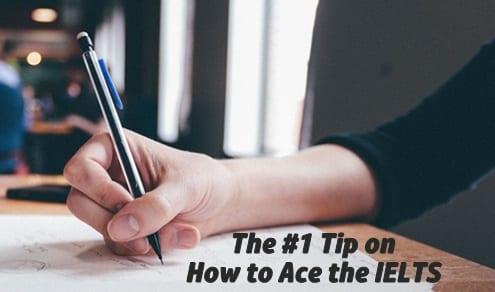The International English Language Testing System (also known as the IELTS) is recognized worldwide as the most popular English proficiency exam. Millions of people from around the globe take the IELTS every year, and unfortunately, many of them do not pass.
There is one trait, however, that everyone who successfully completes the IELTS has in common. It’s something you might not expect.
Our friends at Magoosh describe it in one word: confidence. Self confidence is key to passing the IELTS with flying colors. Keep reading to find out how to apply this simple principle to each section of the exam so you can ace the IELTS.
How to Ace the IELTS with Confidence
Project Confidence in Your Interview
The IELTS assesses every aspect of your English skills, including speaking. This section of the test is unique in that it is set up as a one-on-one, oral interview. Just like when you’re applying for a job, confidence in the interview room is a necessity.
Imagine what would happen if you showed up to a job interview overwhelmed by nerves and the fear of rejection. Chances are, you would perform poorly. You might stumble over your words, look down rather than make eye contact, or speak quietly and unclearly.
Your prospective boss would have trouble understanding you, and probably assume that you’re incapable of getting the job done well.
Nobody wants to be that person in a job interview, and you certainly don’t want to come across that way in an IELTS interview. In IELTS Speaking, it’s just as important to enunciate clearly, and pay attention to your body language. Project confidence with every move you make!
Refuse to be intimidated by your interviewer. Think of this part of the exam as an interview for a job that you know you’re going to get. In a sense, the IELTS is your gateway to a new career, either through immigration or university study.
Write Your Essay with Poise
A lack of confidence comes across the most obviously in IELTS Speaking, but in IELTS Writing there are also ways to “sound” confident in your essay.
To write in a confident tone on the IELTS, use vocabulary and grammar that you’re comfortable with. Be sure to include a variety of word choices and grammar constructions, while not overdoing it. Remember to keep it simple. If you use too many big, esoteric words and complex sentence structures, it’ll open you up to making more mistakes.
It can also come across as unnatural, and all of this can hurt your score. But if you write using the words and syntax you truly understand and feel confident in, you’ll be on your way to achieving the best possible IELTS Writing Score.
If maintaining this balance sounds complicated to you, remember that practice makes perfect. Review the many IELTS books and resources that are available so you can become acquainted with writing style and vocabulary.
RELATED- ESL Learners: Are You Making These 21 Common Mistakes?
Stay Calm During Listening and Reading
What makes a general successful in war? “Grace under fire,” as we like to say in English. This means that good military commanders feel calm and confident, even as they face dangers that would make a less confident person panic.
Of course, the IELTS Reading and Listening sections aren’t literally a battlefield. But as you look across a seemingly hazardous reading passage, or face a bumpy ride through an audio track, for a moment it can seem like you’re waging a personal war for your IELTS score.
Try to remain cool, calm, and collected throughout the Listening and Reading sections of the test. Don’t let fear and panic set in. 
Approach questions, reading passages, and audio strategically. Look for and listen for the most important keywords. If you don’t know the meaning of a written word, or you miss something that was said, stay confident and focused. Look for contextual clues to find the meaning.
Employ elimination techniques on multiple choice questions, and think critically when you need to write down your own short answers. You can practice all of these approaches before you take the test by working through an IELTS study schedule.
Whether you’re taking the IELTS for university admissions, immigration, or employment, one thing is for certain. The more you believe you can pass the IELTS, the more focused and successful you’ll be. Another excellent way to prepare for the IELTS is with the help of an experienced tutor that specializes in English as a second language.
A tutor can help answer any questions you have as you study for the exam. Look for a qualified English teacher near you to receive one-on-one guidance and feedback that will take you one step closer to acing the IELTS. Good luck!
Guest post by David Recine, IELTS expert at Magoosh. David has a Master’s in Teaching English to Speakers of Other Languages and has been teaching ESL since 2007.
Jessica Dais

